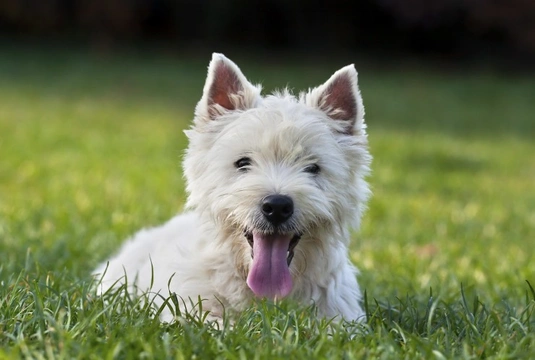
Five potential young puppy problems to stay alert for
Puppies are generally very active, playful and full of beans from virtually as soon as they open their eyes and begin moving around, often playing rough and tumble with their littermates and proving to be quite feisty! However, it is important to remember that while puppies may seem as if they can bounce back from anything, they are also reasonably fragile, both physically and below the surface.
During the first few weeks of life, puppies’ immune systems begin to become established, being strengthened by the antibodies present in their dam’s milk. When they reach a couple of months old they should also receive their first set of vaccinations, in order to further protect them against disease, and allow them to go outside and come into contact with other dogs safely.
Even in very healthy pups who have demonstrated textbook development and appear to be free of problems, there are a range of potential issues and minor bumps in the road that are reasonably common in pups. These tend to manifest (if they are going to) during the pup’s first twelve weeks of life-before they are separated from their dam and rehomed-but that can arise later on too.
In this article, we will look at the five most common potential puppy problems that can arise while the pups are young, and hot to spot them and intervene if required. Read on to learn more.
Weight fluctuations
Pups should be weighed when they are first born, and then repeatedly weighed regularly during their first few weeks and months of life to ensure that they are developing properly, and gradually gaining weight at the right pace.
However, this process is not always linear, and pups will sometimes stall in terms of their weight gain or even lose a little bit of weight before recovering and continuing to grow.
One of the main points at which your pup’s weight may go down slightly instead of up is when the pups are first weaned onto solid foods. Weaning is something that should take place naturally and according to the schedule dictated by the dam and her litter-trying to wean the pups too early, or trying to interfere with the process can cause weight loss in the pups.
This will usually correct itself reasonably quickly-but keep a sharp eye on any pup that has lost weight, to ensure that this is a minor short-term anomaly and not the indication of a problem in the making.
Eating inappropriate things
Pups explore the world with their mouths, even before they begin teething-and when they do start breaking their teeth through the gums, this will kick into high gear! This means that it can turn into virtually a full-time job ensuring that your pup doesn’t chew or eat anything that they shouldn’t do, and you should keep small items that your pup might chew and ingest well away!
As well as things that can help with teething and that your pup might accidentally eat while chewing, they may also start to actually eat things that they shouldn’t too, including faeces or grass, once they come into contact with it for the first time. This is generally a short-term phase that you should monitor for progression, in case it turns into a manifestation of adult pica or coprophagia.
Early allergy symptoms
Allergies in dogs can potentially manifest and develop at any age, but in some cases they will become apparent when the pup is very young. Weaning onto solid food should be carefully monitored in case one of the pups develop a food allergy, and it is wise to keep an eye on new situations and “firsts” for the pups too, in case something proves to be a trigger.
It is also really important to keep the pups and bitch flea-free, because fleabite hypersensitivity is much more likely to develop in pups before their immune systems have developed than it is in adult dogs.
Behavioural setbacks
Puppy training doesn’t really begin in earnest until the pup is three or four months old, and so have developed the attention span and intelligence to get to grips with it.
However, socialisation and learning is a continual process that begins from a very young age, and pups naturally start to learn things like not pooping where you eat while young. That said, it is entirely possible for a pup to appear to un-learn a previous skill and so, begin toileting in the bed or showing another issue. This is totally normal and fine in most cases, and simply requires a refresher on basic training.
Exposure to infections
Finally, the first year of a pup’s life is a vital time when it comes to immune development, and dogs’ immune systems sometimes do not develop fully until they are two years old or even older.
The antibodies in the dam’s milk and of course, the initial vaccinations help greatly to reduce the risks-but the still-developing immune system and exposure to continual new things make the first year of life potentially the most risky time for infections.
Vaccinations help to ensure that your pup won’t catch anything dangerous from another dog, but special care should be taken in the weeks prior to the first vaccinations. Not only can direct contact with other adult dogs spread disease, but so can grass and earth if infected, and the sharing of bowls and toys.
Any time you come home, particularly if you have come into contact with other dogs. Wash your hands and take your shoes off before playing with the pups.



